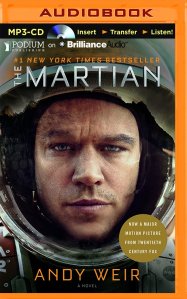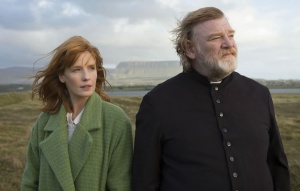“You complete me,” says a man to his book softly in a coffee shop.
Well, not exactly. Not one book (besides the Bible) really completes a person. There was a season of life when I only read history books because I loved the topic. In my early 30s, I came to a point where I was interested so much in the topic, and still am. But, I found myself not growing enough in other areas. It was linear growth and despite my love for history, it is not all that I am.
As I have grown older, I desire to be challenged in my imagination, to avoid the staleness of life, and occasional monotony of checking off the fact that I read a book. I want more out of the reading experience.
Enter the “Renaissance Reader” I aspire to be.
I’ve been on a quest to figure out the best mix of reading that helps shape me to be a better professional, person, and one who can praise God with more heart.
“In an age of specialization people are proud to be able to do one thing well, but if that is all they know about, they are missing out on much else life has to offer… I like the idea of being a Renaissance hack. If tombstones were still in style, I would want to have the two words chiseled right under my name.” – Dennis Flanagan, editor of Scientific American
In the past few years, I have set out on a quest to figure out the right combination of books to help me grow into the “Renaissance Reader” I want to be.
In this time of exploration, I have found the combination of reading three types of books at a time.
My goal is to read three “P’s”:
- Professional – What develops me in my profession
- Personal – What develops me to have fun and dream as a reader
- Praise – What helps make me stronger in my faith
Here are the latest three that I have been reading each day and are best shaping me.
Professional
As a leader of a very talented marketing team in publishing, I am often thrown dozen so business books to read. They have helped shape me professionally but none of them can I safely say have truly transformed me.
For the past few years, I have been scratching my head about how to be a more effective business leader. There are so many prodigious communication tools in today’s mass media market to make my head spin. Things sim ply don’t work the way they used to, which is hard for me because my chief strength is ‘context’ and I feel most at home reading history books with the inclination to draw inspiration from the past to form the future. Yet, the future is so uncertain. I am in a different stage of career where I lead over a dozen people, separated in different groups, and some with differing objectives.
ply don’t work the way they used to, which is hard for me because my chief strength is ‘context’ and I feel most at home reading history books with the inclination to draw inspiration from the past to form the future. Yet, the future is so uncertain. I am in a different stage of career where I lead over a dozen people, separated in different groups, and some with differing objectives.
I am forced think differently. Enter Team of Teams by General Stanley McChrystal. He draws lessons from his time adapting to the Al Qaeda in Iraq (AQI). When General Stanley McChrystal took command of the Joint Special Operations Task Force in 2004, he quickly realized that conventional military tactics were failing. Al Qaeda in Iraq was a decentralized network that could move quickly, strike ruthlessly, then seemingly vanish into the local population. The allied forces had a huge advantage in numbers, equipment, and training—but none of that seemed to matter.
McChrystal was forced to change his team into a more flexible and cohesive information-sharing team to fight back.
Team of Teams has been a book to help clarify my role as a leader and manager in today’s complex environment. I am so thankful for the military and General Stanley McChrystal in how he had the courage to adapt to a new environment. We all can learn from the military.
Personal
 I love history and fiction so I try to read something in this area that fulfills that joy. My latest has been one of the most inspiring stories in publishing the past few years. My latest read is The Boys in the Boat. Who would have thought rowing was interesting, especially set in the 1930s? I am sure people felt the same way about Seabiscuit. I literally was clapping and cheering for these underdog boys from Washington state, overcoming immense odds during the depression to win the 1936 Olympic gold medal. The Boys in the Boat is one of the finest narratives written in the past few years.
I love history and fiction so I try to read something in this area that fulfills that joy. My latest has been one of the most inspiring stories in publishing the past few years. My latest read is The Boys in the Boat. Who would have thought rowing was interesting, especially set in the 1930s? I am sure people felt the same way about Seabiscuit. I literally was clapping and cheering for these underdog boys from Washington state, overcoming immense odds during the depression to win the 1936 Olympic gold medal. The Boys in the Boat is one of the finest narratives written in the past few years.

The 1936 U.S. Olympic rowing team from the University of Washington. From left: Don Hume, Joseph Rantz, George E. Hunt, James B. McMillin, John G. White, Gordon B. Adam, Charles Day, and Roger Morris. At center front is coxswain Robert G. Moch.
Photo courtesy of University of Washington Libraries, Special Collections, UW2234.
Praise
I aim to consistently read a Christian-themed book that challenges my faith to grow deeper.
 There are many books I would recommend to read before Lewis’ The Weight of Glory, primarily because it is a collection of essays and speeches given by Lewis. In college, I wrote a paper about Lewis’ influence and encouragement to fellow British citizens during World War II. Published years later, The Weight of Glory is evidence of his contributions to give hope and understanding for a world that seemed poised to end for Britain. Churchill and Roosevelt gave their radio fireside chats but Lewis, even as a layman, provided something even deeper. As you study Lewis further, I highly recommend reading this treasure. Put yourselves in the shoes of an average Briton during World War II and his words and God’s truth will come alive.
There are many books I would recommend to read before Lewis’ The Weight of Glory, primarily because it is a collection of essays and speeches given by Lewis. In college, I wrote a paper about Lewis’ influence and encouragement to fellow British citizens during World War II. Published years later, The Weight of Glory is evidence of his contributions to give hope and understanding for a world that seemed poised to end for Britain. Churchill and Roosevelt gave their radio fireside chats but Lewis, even as a layman, provided something even deeper. As you study Lewis further, I highly recommend reading this treasure. Put yourselves in the shoes of an average Briton during World War II and his words and God’s truth will come alive.
One of Lewis’ most famous lines is found in these pages, “Real forgiveness means looking steadily at the sin, the sin that is left over without any excuse, after all allowances have been made, and seeing it in all its horror, dirt, meanness, and malice, and nevertheless being wholly reconciled to the man who has done it. That, and only that, is forgiveness, and that we can always have from God if we ask for it.”
What connects it all? Reading the Bible everyday.
There is a story to be told that connects all of what we are meant to do and it is the word of God. I’ve heard it referred to at the greatest self-help book, ever. It is true. God’s Word is our greatest guide to shaping how we approach each day.
“All Scripture is inspired by God and is profitable for teaching, for rebuking, for correcting, for training in righteousness, so that the man of God may be complete, equipped for every good work.” 2 Timothy 3:16-17 HCSB
Reading is such a wonderful experience. But, it is meant to be shared so I encourage you whether in the Bible to use an online sharing platform like YouVersion, Wordsearch, or He/She Reads Truth. Or or as a reader, use Facebook Groups and Goodreads.com to share your review with others.
“We read to know we are not alone.” – C.S. Lewis.
What are you reading? Do you have a mix of books you enjoy reading to fulfill yourself?















 There are many books I would recommend to read before Lewis’
There are many books I would recommend to read before Lewis’ 







 ,
, 




